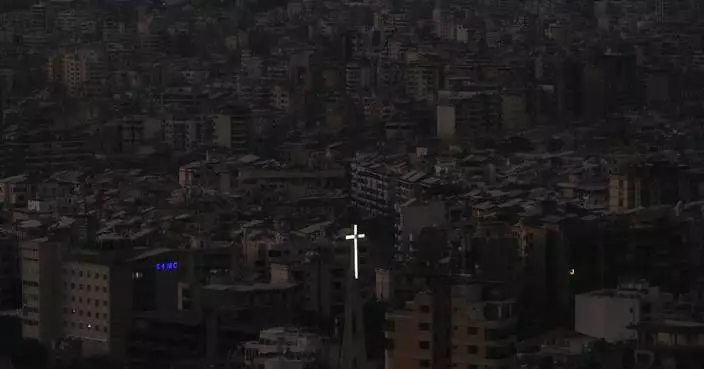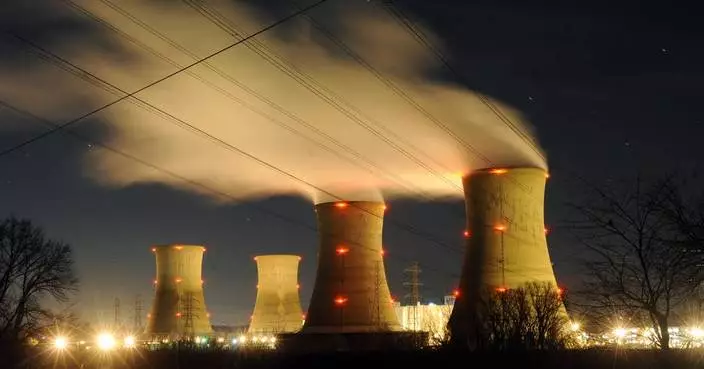HANOI, Vietnam (AP) — A Vietnamese real estate tycoon was convicted Thursday of fraudulently obtaining property worth billions of dollars and sentenced to life in prison, in a case that has been a centerpiece of the government's crackdown on corruption.
Truong My Lan was already convicted in April by the same Ho Chi Minh City court of fraud amounting to $12.5 billion — nearly 3% of the country's gross domestic product — in a separate case and sentenced to death by lethal injection.
Click to Gallery
Truong Hue Van, niece of Vietnamese real estate tycoon Truong My Lan, sits in court to wait for her verdict for her involvement in Lan's case in Ho Chi Minh city, Vietnam Thursday, Oct. 17, 2024. (Quynh Tran/VNExpress via AP)
Chu Nap Kee, husband of Vietnamese real estate tycoon Truong My Lan, sits in court to wait for her verdict for his involvement in Lan's case in Ho Chi Minh city, Vietnam Thursday, Oct. 17, 2024. (Quynh Tran/VnExpress via AP)
Vietnamese real estate tycoon Truong My Lan sits in court to wait for her verdict on fraud, money laundering and illegal cross-border money transferring in Ho Chi Minh city, Vietnam Thursday, Oct. 17, 2024. (Quynh Tran/VnExpress via AP)
Vietnamese real estate tycoon Truong My Lan sits in court to wait for her verdict on fraud, money laundering and illegal cross-border money transferring in Ho Chi Minh city, Vietnam Thursday, Oct. 17, 2024. (Quynh Tran/VnExpress via AP)
Vietnamese real estate tycoon Truong My Lan, center, sits in court to wait for her verdict on fraud, money laundering and illegal cross-border money transferring in Ho Chi Minh city, Vietnam Thursday, Oct. 17, 2024. (Quynh Tran/VnExpress via AP)
Vietnamese real estate tycoon Truong My Lan, center, is escorted to a trial for her verdict on fraud, money laundering and illegal cross-border money transferring in Ho Chi Minh city, Vietnam Thursday, Oct. 17, 2024. (Quynh Tran/VNExpress via AP)
The trials were broken into two parts due to the number of allegations against her, and Thursday's verdict adds to Lan's legal troubles as she awaits the appeal of her death sentence to be heard.
Vietnam has handed down more than 2,000 death sentences in the past decade and executed more than 400 prisoners. It is a possible sentence for 14 different crimes but is generally only applied in cases of murder and drug trafficking.
“Standing here today is a price too expensive for me to pay. I consider this my destiny and a career accident,” the VNexpress online newspaper quoted Lan, the chairwoman of property developer Van Thinh Phat, as telling the judges in her closing statement last week.
“For the rest of my life, I will never forget that my actions have affected tens of thousands of families.”
Nguyen Hieu, a schoolteacher whose life savings of $36,000 is tied up in illegal bonds issued by Lan's company, said the life sentence was fair.
“She deserves the punishment,” he said, adding that he hoped the death sentence from the first trial is commuted so that Lan has the opportunity to pay back her victims.
All other 33 co-defendants were found guilty of various charges and received sentences ranging from two to 23 years in prison. They included Chu Nap Kee, Lan's husband, who was sentenced to two years for money laundering.
In addition to obtaining property by fraud, Lan was also convicted of money laundering and illegal cross-border money transfer charges, according to state-run media.
She was accused of raising $1.2 billion from nearly 36,000 investors by issuing bonds illegally through four companies, according to state media reports.
She was also found guilty of siphoning off $18 billion obtained through fraud and for using companies controlled by her to illegally transfer more than $4.5 billion in and out of Vietnam between 2012 and 2022.
It was not immediately clear if Lan would appeal the verdict and no date has yet been set for her appeal of her death penalty conviction to be heard.
In the April conviction, she was found to have orchestrated financial fraud amounting to $12.5 billion for illegally controlling a major bank allowing loans that resulted in losses of $27 billion, according to state media reports.
Lan’s arrest in October 2022 was among the most high-profile in an ongoing anti-corruption drive in Vietnam that has intensified since 2022.
The Communist Party's “blazing furnace” campaign has also touched the highest echelons of Vietnamese politics.
Former President Vo Van Thuong resigned in March after being implicated in the campaign. Since 2016, thousands of party officials have been disciplined, including former President Nguyen Xuan Phuc and the former head of parliament, Vuong Dinh Hue, both of whom resigned.
In all, eight members of the powerful Politburo have been ousted on corruption allegations, compared to none between 1986 and 2016.
The anti-corruption drive began in 2013, but it wasn’t until 2018 that authorities began scanning the private sector. Since then, several owners of Vietnam’s fast-growing businesses have been arrested.
The campaign had been the hallmark of Communist Party General Secretary Nguyen Phu Trong, Vietnam’s top politician. who died earlier this year at age 80.
The ideologue had called corruption a grave threat to the party and vowed that the campaign would be a “blazing furnace” in which no one was untouchable.
In another high-profile case, business tycoon Trinh Van Quyet was found guilty in August of defrauding stockholders of nearly $150 million by falsely inflating the value of his company.
The Hanoi People's Court sentenced Quyet to 21 years in prison and convicted 49 co-defendants on a variety charges, with sentences ranging from probation to multiple years in prison.
Lan and her family established the Van Thinh Phat company in 1992 after Vietnam shifted from a state-run economy to a more market-oriented approach that was open to foreign investors. She started out helping her mother, a Chinese entrepreneur, sell cosmetics in Ho Chi Minh City’s oldest market, according to the state media outlet Tien Phong.
Van Thinh Phat became one of Vietnam’s richest real estate companies, with projects including luxury residential buildings, offices, hotels and shopping centers. This made her a key player in the country’s financial industry.
Lan’s first trial shocked many Vietnamese.
Analysts said the scale of the scam raised questions about whether other banks or businesses had similarly erred, dampening Vietnam’s economic outlook and making foreign investors jittery at a time when Vietnam is trying to position itself as the ideal home for businesses trying to diversify supply chains away from China.
Rising reported from Bangkok.

Truong Hue Van, niece of Vietnamese real estate tycoon Truong My Lan, sits in court to wait for her verdict for her involvement in Lan's case in Ho Chi Minh city, Vietnam Thursday, Oct. 17, 2024. (Quynh Tran/VNExpress via AP)
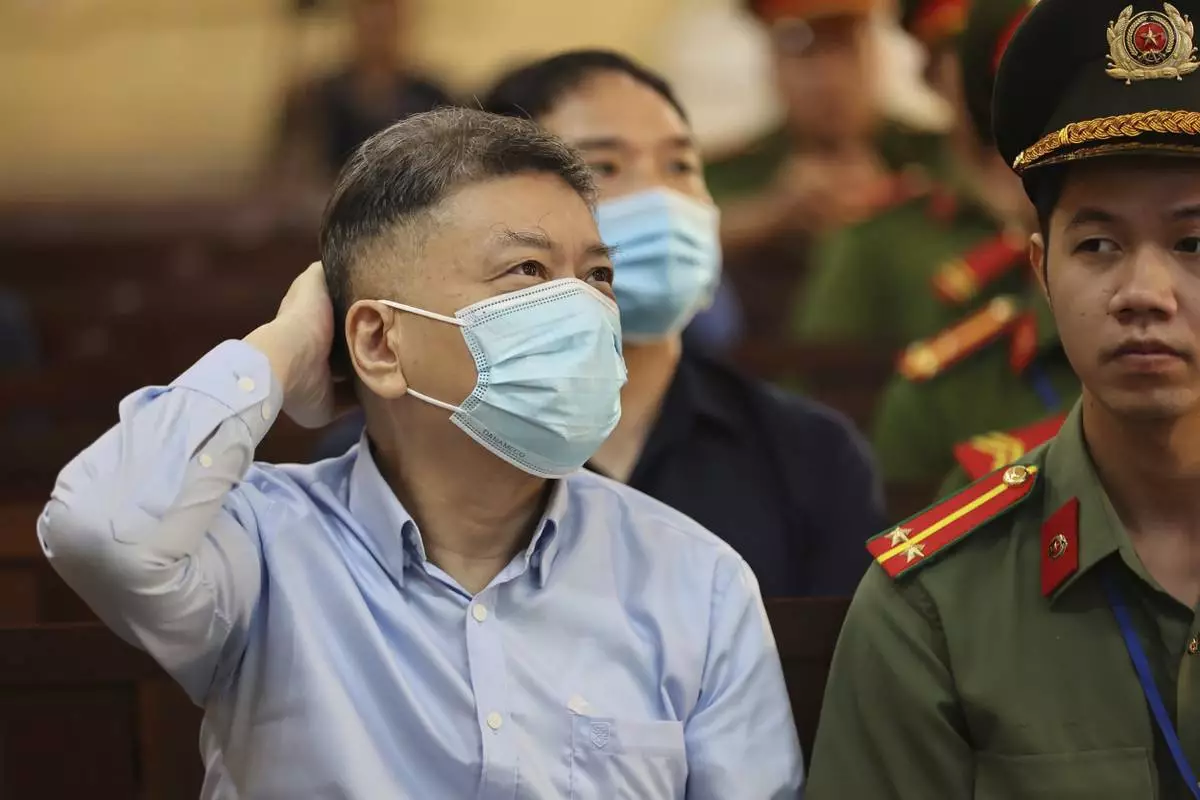
Chu Nap Kee, husband of Vietnamese real estate tycoon Truong My Lan, sits in court to wait for her verdict for his involvement in Lan's case in Ho Chi Minh city, Vietnam Thursday, Oct. 17, 2024. (Quynh Tran/VnExpress via AP)

Vietnamese real estate tycoon Truong My Lan sits in court to wait for her verdict on fraud, money laundering and illegal cross-border money transferring in Ho Chi Minh city, Vietnam Thursday, Oct. 17, 2024. (Quynh Tran/VnExpress via AP)

Vietnamese real estate tycoon Truong My Lan sits in court to wait for her verdict on fraud, money laundering and illegal cross-border money transferring in Ho Chi Minh city, Vietnam Thursday, Oct. 17, 2024. (Quynh Tran/VnExpress via AP)
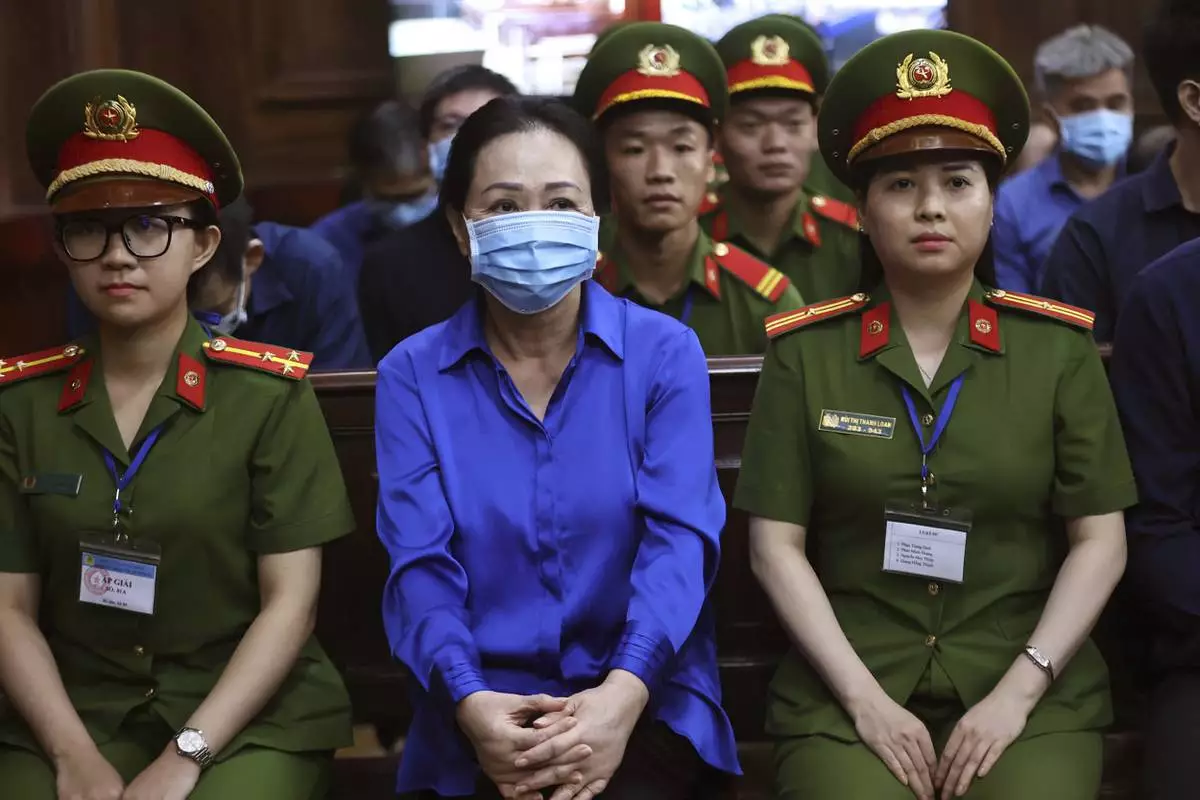
Vietnamese real estate tycoon Truong My Lan, center, sits in court to wait for her verdict on fraud, money laundering and illegal cross-border money transferring in Ho Chi Minh city, Vietnam Thursday, Oct. 17, 2024. (Quynh Tran/VnExpress via AP)
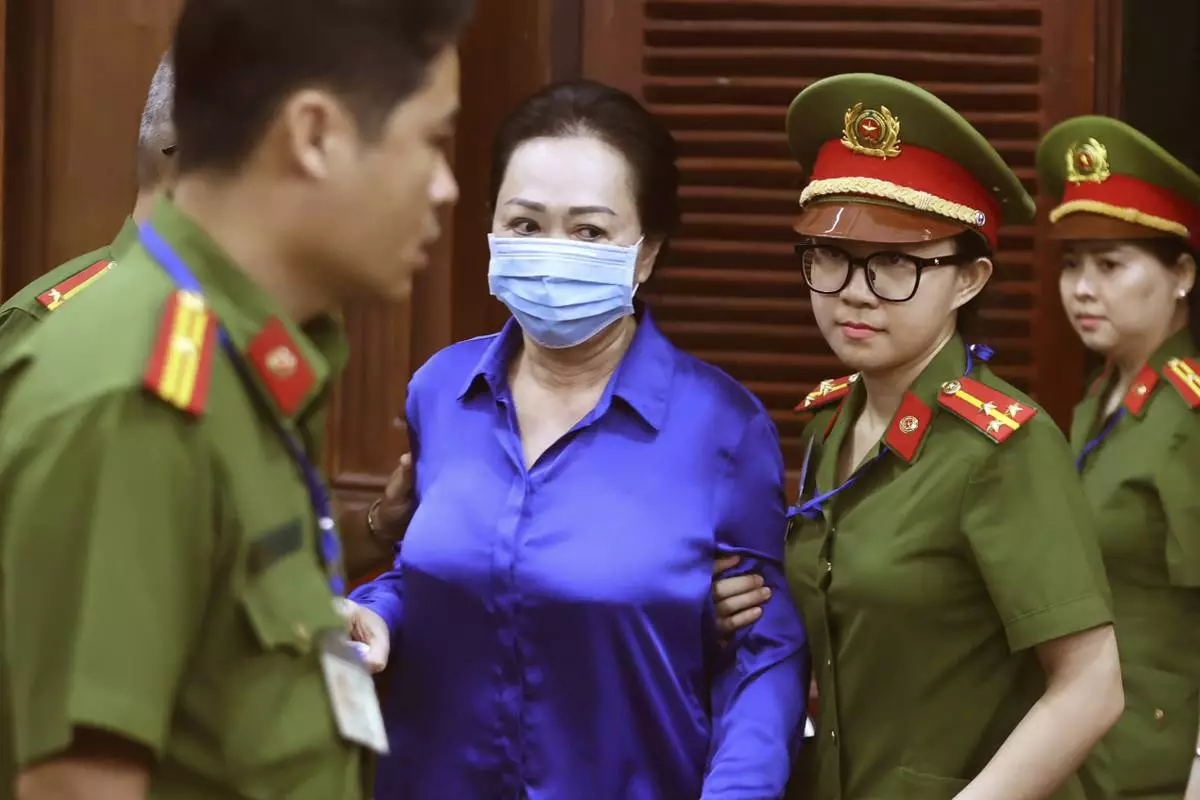
Vietnamese real estate tycoon Truong My Lan, center, is escorted to a trial for her verdict on fraud, money laundering and illegal cross-border money transferring in Ho Chi Minh city, Vietnam Thursday, Oct. 17, 2024. (Quynh Tran/VNExpress via AP)
DUBAI, United Arab Emirates (AP) — The U.S. military unleashed B-2 stealth bombers to target underground bunkers used by Yemen’s Houthi rebels early Thursday, a major escalation in the American response to the rebels' attacks on Mideast shipping lanes that appeared to be a warning to Iran as well.
While it wasn't immediately clear how much damage the strikes caused, the attack appeared to be the first use of the B-2 in combat in years and the first time the flying wing targeted sites in Yemen.
In announcing the strikes against the Houthis, who have been attacking ships for months in the Red Sea corridor over the Israel-Hamas war in the Gaza Strip, U.S. Defense Secretary Lloyd Austin made a point to offer a warning likely heard in Tehran as well.
“This was a unique demonstration of the United States’ ability to target facilities that our adversaries seek to keep out of reach, no matter how deeply buried underground, hardened or fortified,” Austin said.
Iran, the Houthis’ main benefactor, has targeted Israel with ballistic missile attacks twice over the past year. The B-2 would be used in any American attack on hardened Iranian nuclear facilities like Natanz or Fordo given it is the only aircraft in service that can drop the GBU-57, known as the “Massive Ordnance Penetrator.”
Iran offered no immediate comment on the strike Thursday. Its foreign minister has been visiting Arab nations ahead of an expected Israeli retaliatory strike over Tehran's Oct. 1 missile assault.
The Houthis' al-Masirah satellite news channel reported airstrikes around Yemen's capital, Sanaa, which the group has held since 2014. They also reported strikes around the Houthi stronghold of Saada. They offered no immediate information on damage or casualties.
Austin said the B-2 bombers targeted “five hardened underground weapons storage locations in Houthi-controlled areas of Yemen.” Both he and the U.S. military's Central Command offered no immediate assessment on the damage done. However, Central Command said it believed no civilians had been killed.
The Red Sea has become a battlefield for shippers since the Houthis began their campaign targeting ships traveling through the waterway, which once saw $1 trillion of cargo pass through it yearly.
Houthis have targeted more than 80 merchant vessels with missiles and drones since the war in Gaza started in October 2023. They have seized one vessel and sunk two in the campaign that has also killed four sailors. Other missiles and drones have either been intercepted by a U.S.-led coalition in the Red Sea or failed to reach their targets, which have included Western military vessels.
The rebels maintain that they target ships linked to Israel, the U.S. or the United Kingdom to force an end to Israel’s campaign against Hamas in Gaza. However, many of the ships attacked have little or no connection to the conflict, including some bound for Iran.
The Houthis also continue to launch missiles targeting Israel and have shot down U.S. military MQ-9 Reaper drones. The rebels have threatened new attacks in response to Israel's ground invasion of Lebanon and its killing of Hezbollah leader Hassan Nasrallah.
Hamas' initial Oct. 7, 2023, attack on Israel that sparked the war killed some 1,200 people and saw 250 others taken hostage. Israeli miltary action in the time since has killed over 42,000 Palestinians in the Gaza Strip, hundreds more in the West Bank and over 2,300 people in Lebanon. Meanwhile, the combat edges ever closer to a full-on regional war.
The locations named by the Houthis on Thursday correspond to known underground bases operated by the rebels, who have been locked into a stalemated war with a Saudi-led coalition since 2015 that’s decimated the Arab world’s poorest nation.
The Houthis have refurbished tunnels that once held Scud missiles when Yemen was ruled by strongman Ali Abdullah Saleh, according to an analysis in April by the International Institute for Strategic Studies. Those sites include the al-Hafa and Jebel Attan military bases, the former Presidential House and the Yemen state television compound in Sanaa, analyst Fabian Hinz wrote.
The Houthis have built what appears to be their own large-scale tunnel network near Saada as well, Hinz added.
“The fact that the Houthis began constructing major new installations after the agreement of the cease-fire with the Saudi-led coalition suggests that the group is focused on entrenching themselves and bolstering their military capabilities,” he wrote. Iran similarly relies on a network of underground missile bases.
The nuclear-capable B-2, which first saw action in 1999 in the Kosovo War, is rarely used by the U.S. military in combat as each aircraft is worth some $1 billion. It has dropped bombs in Afghanistan, Iraq and Libya as well. The aircraft are based at Whiteman Air Base in Missouri and typically conduct long-range strikes from there, though some B-2s were in Australia in September.
The U.S. last used the B-2 in combat in 2017 against Islamic State group targets in Libya, killing more than 80 fighters in a mission defense officials at the time said disrupted possible militant attacks in Europe.
The B-2's use in Yemen comes just two days after U.N. Special Envoy Hans Grundberg warned Yemen's frozen war could heat back up given the Mideast wars and the Houthis' taking captive U.N. and aid workers in an internationally criticized crackdown.
“This cycle of retaliation is pulling Yemen deeper into the regional conflict, jeopardizing its hopes for peace and stability,” Grundberg said Tuesday. “Moreover, it distracts from the urgent need to address Yemen’s own internal crisis.”
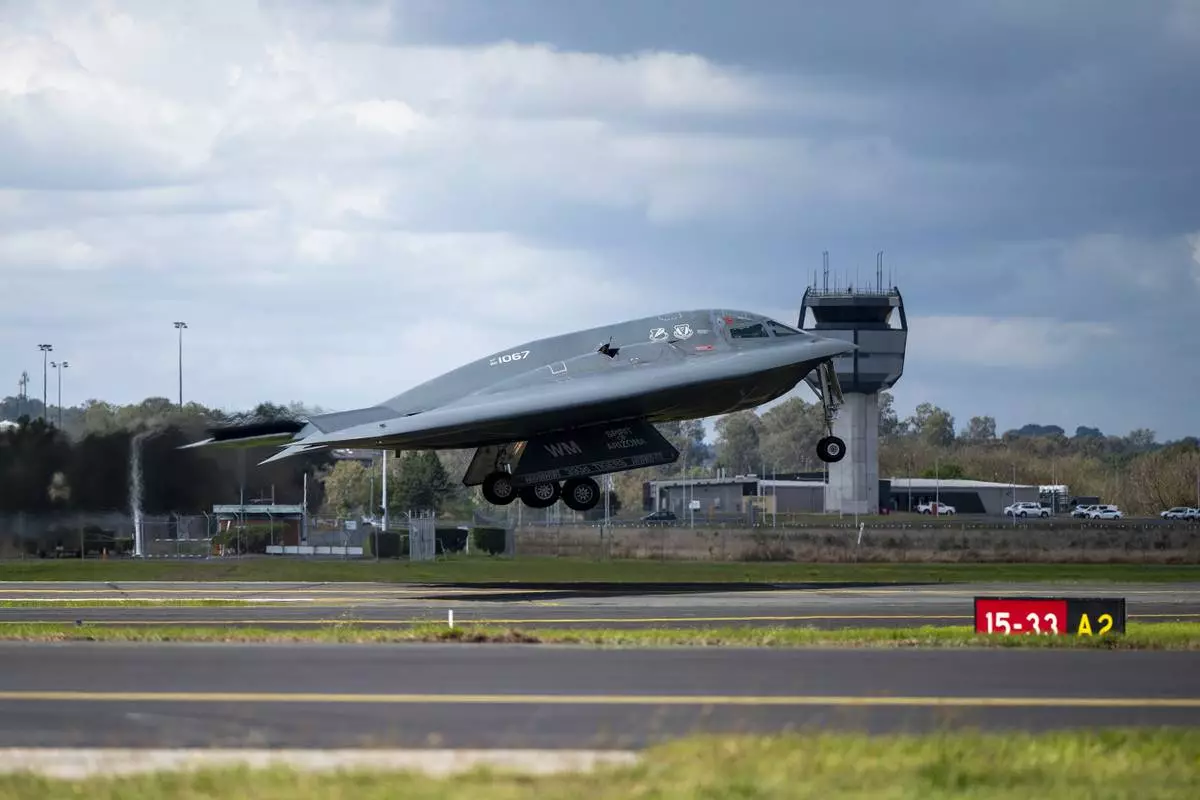
In this photo released by U.S. Air National Guard, a U.S. Air Force B-2 Spirit stealth bomber takes off from a Royal Australian Air Force base in Amberley, Australia, Sept. 11, 2024. U.S. long-range B-2 stealth bombers launched airstrikes early Thursday, Oct. 17, 2024, targeting underground bunkers used by Yemen's Houthi rebels, officials said. (Staff Sgt. Whitney Erhart/U.S. Air National Guard via AP)





















